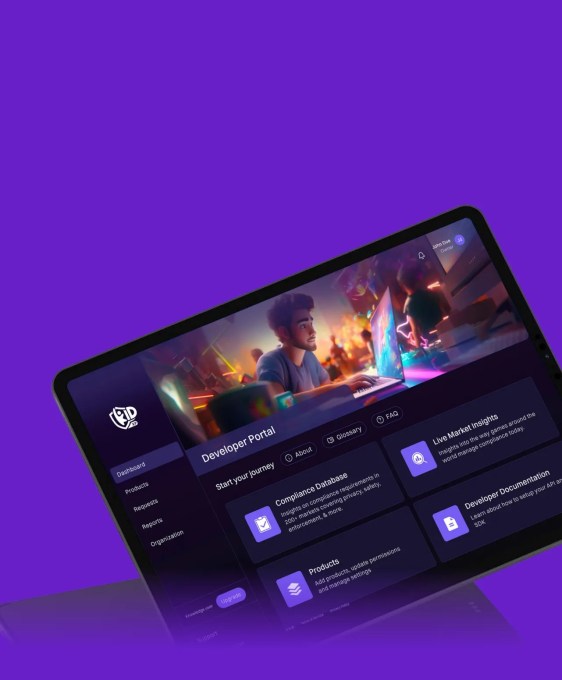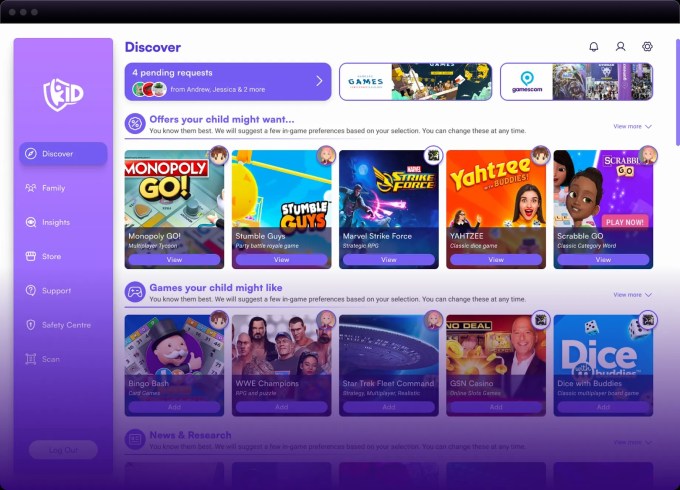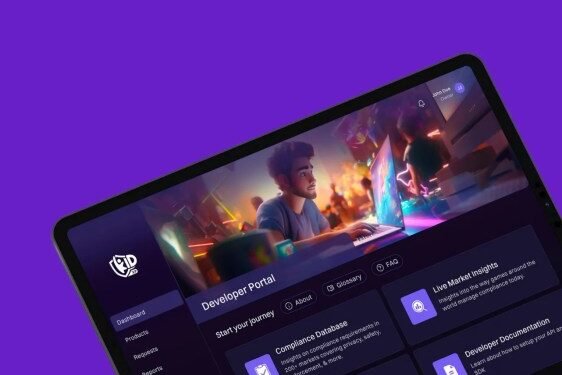Making a video game successful is already hard. Doing so while complying with the growing number of child safety laws and regulations around the world is an almost insurmountable task. A new technology company called k-ID aims to make this process much easier for game makers, by offering a framework that protects publishers and developers against the pitfalls that come with non-compliance, including regulatory sanctions, reputational risk, and other consequences.
Co-founded by CEO Kieran Donovan, an attorney by trade, whose work involved advising tech and gaming companies on global compliance, k-ID is an attempt to turn his understanding of the law and regulations as it related to scaling a game — or even a social platform — into a product. His experience in guiding companies through the regulatory framework and other cultural sensitivities they may not be aware of forms the basis for k-ID’s new solution.
“You get asked the same question time over and time over…and the light bulb goes on and you think, ‘Wait a minute, there’s an opportunity for someone to actually build something for everyone to solve some of these challenges in the kids, teens and parents space,” Donovan tells TechCrunch.
K-ID’s solution was built over the past 18 months, with help from co-founders whose backgrounds also include privacy law, online trust and safety, as well as tech and gaming experience. In addition to Donovan, k-ID’s executive team includes Chief Safety Officer Jeff Wu, a trust and safety veteran who previously worked at Google and Meta; Chief Growth Officer Julian Corbett, who held executive positions at In-Fusio, Take-Two Interactive, Voodoo, and Tencent; Chief Corporate Affairs Officer Luc Delany, previously CEO of the International Social Games Association (ISGA) and Chair of the Mobile Games Intelligence Forum (MGIF); CTO Aakash Mandhar, previously of Microsoft, EA, Immutuable, and others; and soon-to-be Chief Legal Officer, Timothy Ma, previously head of international privacy and Data Protection Officer at Tencent.

Image Credits: k-ID
Part of the challenge facing game developers is that they don’t necessarily even know if kids are using their platform because age verification often includes only a simple pop-up where users indicate that they’re over the age of 13 by typing in a birth date. Historically, game developers may have had to verify the child’s age or request ID to prove the player is not a kid. If they fail, they may have to remove the account. But with k-ID, they could instead customize the game experience to be legally appropriate for a player of that age in that particular market.
“The systems aren’t designed to really identify and then manage the younger users or the more vulnerable users that might be on these platforms,” notes Donovan. “So for me, I think there’s an opportunity to take everything that I was working on from a regulatory compliance perspective and deploy it in a way to solve real-world problems.”

To use k-ID, developers can access the solution via APIs or, if on mobile, an SDK.
The service first identifies what a child is, by law, in each market where the games are available. In the U.S., platforms may be age-gated for 13 and up, but in other markets, the age may be higher. Simply knowing this answer can help the game developer customize the experience for the child, teen or adult appropriately. Then there are questions about how the parent may need to be engaged, given the child’s age — do they need to consent? What sort of information do they need to know? When the developer is launching new features, it also has to know if things like chat, loot boxes, leaderboards, and public profiles are allowed for kids or teens in a specific market.
“There are different sensitivities and different compliance requirements for everyone in every country…there is this infinite decision tree. That’s what we solve for the publishers,” says Donovan.
With its API-based model, k-ID doesn’t need access to the game code itself. It can send its signals to the game, so the game can configure itself for the age, location, and even digital maturity of the particular child — the latter, for instance, if a parent approves their child or teen can play a more mature game, they could consent to this through an interface k-ID helps to power.
k-ID’s solution entered into early access in November 2023 with a handful of game publishers across platforms in markets including the U.S., Europe, Japan, Korea, and China. It’s now open and available to everyone as of today. Its core offering includes APIs and SDKs to customize game experiences. Publishers can also pay to access k-ID’s database focused on gaming industry compliance or pay for a “family portal” functionality that hosts the experience for parents. The pricing begins at free and then scales up with the number of active players per gaming title.
The remotely distributed team is backed by a total of $5.4 million from both pre-seed and seed funding rounds last year. Investors include a16z Games Speedrun, Konvoy Ventures, and TIRTA Ventures.










